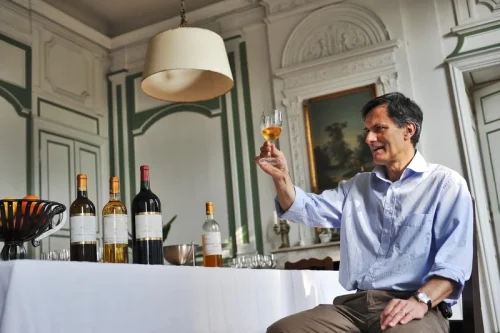Sober living
Alcohol Cravings and How to Beat Them

Without it, the brain makes chemical demands and requests for alcohol. From immediate remedies to long-term strategies, conquer the evidence with confidence. Embark on https://ecosoberhouse.com/article/what-to-do-if-you-cant-sleep-without-alcohol/ your journey to sobriety at Derry Rehab Center – your path from darkness to light starts here. Unveil coverage details and make informed decisions for your care.

Biological Factors
If you or someone you know needs rehabilitation for alcoholism, a treatment facility like Steps to Recovery should be the first place you call. Many people believe that the body craving sugar after addiction is simply a natural response to the sugar content in alcohol, but there’s more to the story. They start with the brain and, in the case of a recovering addict, can be a sign of why do alcoholics crave sugar addictive behaviors. Once you quit drinking, your brain knows that it can receive the same dopamine rush you felt with alcohol through sweets, as they affect some of the same neural pathways alcohol does. Silver Pines and Steps to Recovery have provided addiction recovery programs in Pennsylvania for over a decade with detox, residential, outpatient, and sober living services.
The Clock is Ticking: How Long Drugs Stay in Your System
- Consequently, when they discontinue alcohol consumption, these individuals may face sugar cravings instead of alcohol cravings.
- In addition to increased sensitivity to sweet tastes, alcoholics also tend to have a preference for sweet drinks.
- “L-glutamine can help minimize alcohol and sugar cravings and mitigate stress while promoting relaxation,” says Scheller.
- In other words, like most addictive substances, alcohol creates the conditions that fuel addiction to it within the brain.
Explore government support and private sector contributions today. Overcoming predispositions to substance use disorders with strategic approaches. Explore the influences, genetics, and social support for a healthier future.
Dietary Impact on Recovery
Alcohol consumption increases dopamine release in the brain, leading to a craving for substances that can replicate or enhance these pleasurable effects, including sugary foods and beverages. When it comes to managing sugar cravings in recovering alcoholics, seeking professional support is often necessary to ensure long-term recovery and overall well-being. Recognizing the signs that indicate the need for professional help is crucial. Some of these signs include difficulty managing cravings, negative effects on mental health, and disrupted daily routines.

Even if the individual can’t consciously feel it, their brain does. Another option is to explore sugar substitutes, such as stevia or monk fruit extract, which can provide sweetness without the added calories or impact on blood sugar levels. However, it’s important to use these substitutes in moderation and consult with a healthcare professional, as everyone’s response to sugar substitutes may vary. Alcohol addiction can take a toll on the body, leading to the depletion of essential nutrients. Chronic alcohol consumption interferes with the body’s ability to absorb and utilize nutrients effectively. This depletion can result in various deficiencies, including B vitamins, magnesium, zinc, and others.

Why does giving up alcohol lead to sugar cravings?

Similarities in Brain Response
- Explore the benefits of Acceptance and Commitment Therapy (ACT) for boosting your mental health.
- Examine the impact, challenges, and interventions for a brighter future.
- Maintaining proper nutrition in alcohol recovery is a continuous process.
- It is natural to have a sweet tooth, and finding healthier alternatives to satisfy those cravings can be beneficial during recovery.
Managing Sugar Cravings in Recovery
- Furthermore, patients with alcohol use disorder present a unique pattern of gut microbiome.
- This can significantly aid in the recovery process and help to prevent potential relapses.
- In early recovery, it is common for individuals to turn to high-calorie, high-sugar, low-nutrient foods.
- Sugar, with its ability to activate the reward system in a similar way to alcohol, becomes a substitute for the pleasurable effects previously derived from alcohol consumption.
